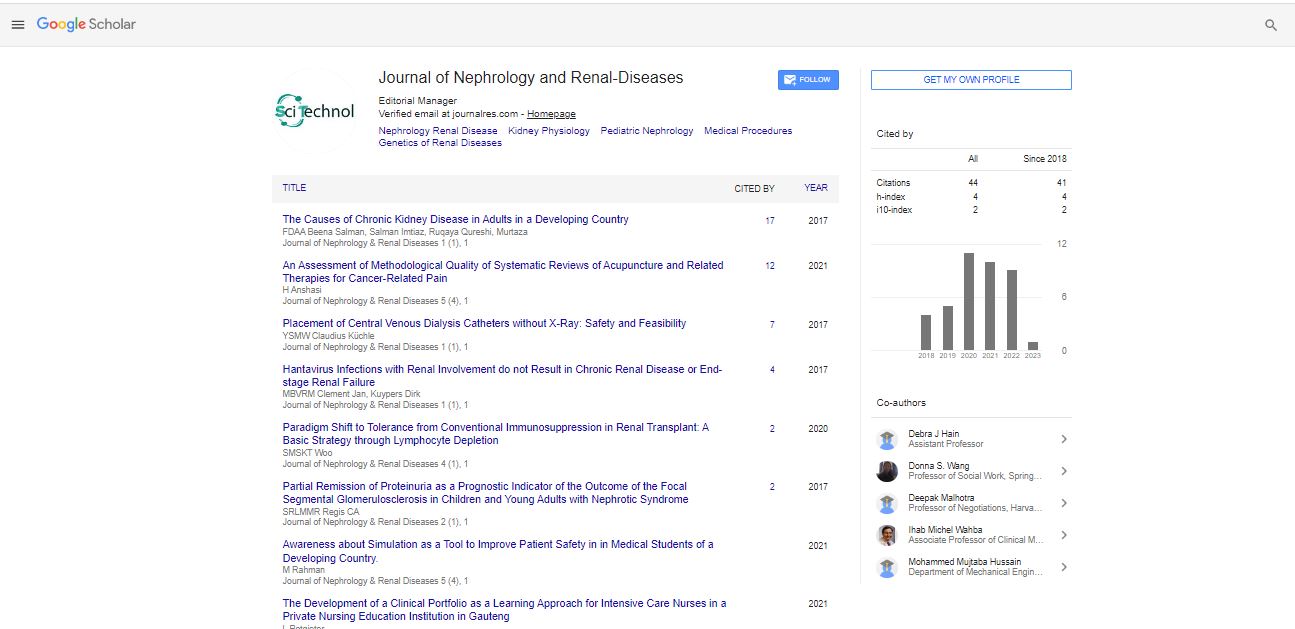Biologics and biosimilars in autoimmune disease
Sandra simic
Ewopharma, Croatia
: J Nephrol Ren Dis
Abstract
Biologics that target autoimmune responses and inflammatory injury pathways have a marked beneficial impact on the management of many chronic diseases, including rheumatoid arthritis, psoriasis, inflammatory bowel disease, and ankylosing spondylitis. The use of biologic therapies for the treatment of autoimmune diseases is rapidly expanding, owing to the good efficacy and safety profiles of these drugs, and the better understanding of the initial targets of altered immune regulation and activity in various diseases. The major targets of most biologic therapies are cytokines, B cells, and co-stimulation molecules. Anti-cytokines include antitumor necrosis factor (TNF)-α, anti-interleukin (IL)-1, and anti-IL-6 molecules. B-cell depletion includes use of anti- CD20 antibodies and B cell receptor (BCR) modulation by the B-lymphocyte stimulator (BLyS). Although some of the biologic therapies have been found to be useful in more than one disease, others are specific for a single disease. The last two decades have witnessed a revolution in the treatment of autoimmune diseases due to the introduction of biological agents which, although now included as standard treatment in patients with autoimmune rheumatological, dermatological and gastrointestinal diseases. The use of biological agents is associated with greater costs compared with the mainly anti-inflammatory and immunosuppressant drugs used in the pre-biological era. Biosimilars are a classification of biologic medicines that are similar to currently available biologic therapies known as originators. They provide significant savings to hospitals budget and enable higher number of patient’s availability of biologic treatment. Biosimilars are highly similar copies of biological drugs, but not identical to approved ‘reference’ agents. Biological agents are complex proteins involved in the immune response and their exact replicas are extremely difficult, if not impossible, to obtain. Three scenarios have converged to provide a specific opportunity for biosimilars in autoimmune diseases: growing demand for biologics due to successful clinical use; the nearing of patent expiry for the four top-selling biological brands; and the search to reduce health costs due to the financial crisis.
Biography
Sandra Simic is graduated pharmacist (University of Pharmacy and biochemistry Zagreb, Croatia) and holds MBA postgraduate diploma from Cotrugli Business School. She started her career in pharmaceutical industry 12 years ago, and has been in charge of several positions included project management and key account management. She has extensive experience in marketing and sales of original biologics (adalimumab and vedolizumab) in European markets. Currently she works as Biogen Biosimilars Leader in company Ewopharma which is representative partner for Biogen biosimilars program in central and eastern Europe– and is responsible for commercial operations of 3 Biogen TNF-α inhibitors in Croatian market.
E-mail: sandra.simic123@gmail.com
 Spanish
Spanish  Chinese
Chinese  Russian
Russian  German
German  French
French  Japanese
Japanese  Portuguese
Portuguese  Hindi
Hindi 
